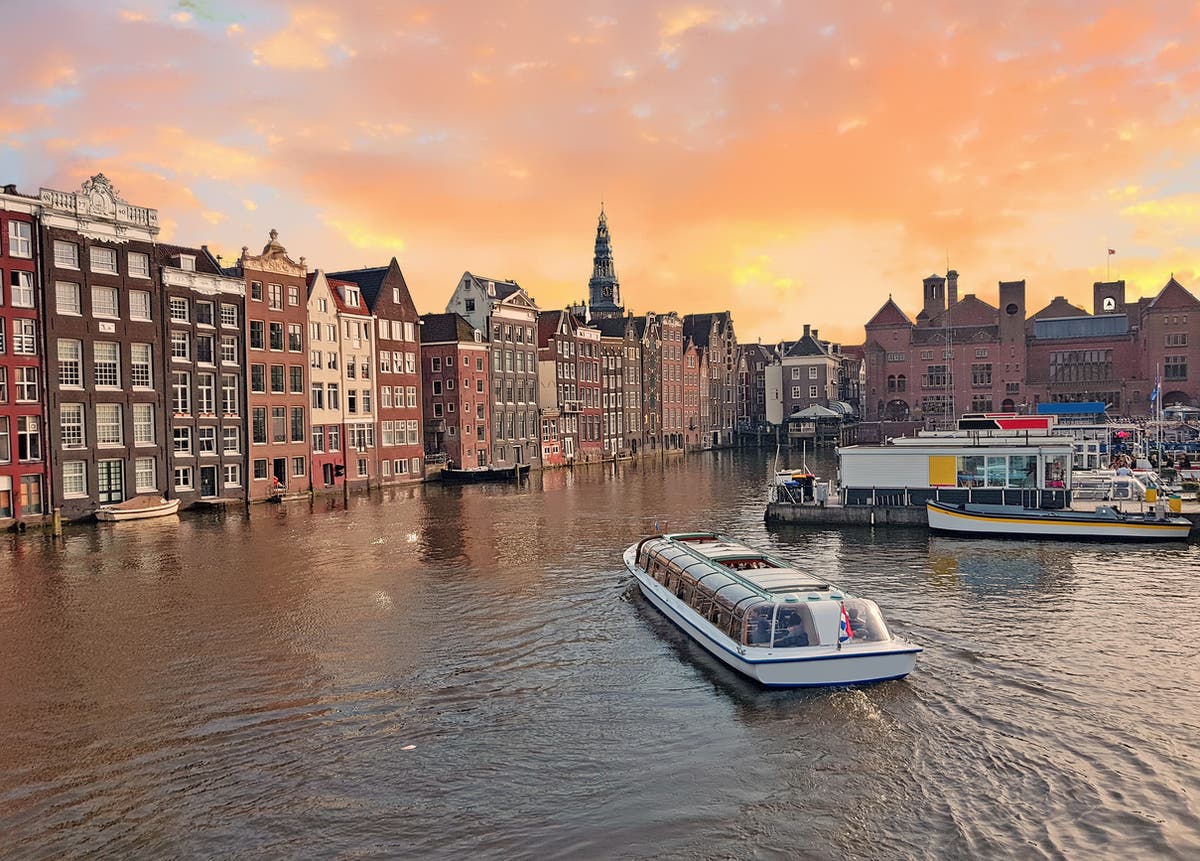The city of Amsterdam is escalating its campaign against overtourism on top of existing efforts to discourage problematic Brits abroad and crack down on tourist etiquette.
In the latest measures, a limit on the number of river cruises that enter the Dutch capital’s waterways and plans to reduce overnight visitors by banning the construction of new hotels intend to discourage tourists from making the trip.
The proposals to restrict the way tourists enter and stay in the city predict 271,000 fewer visitors per year via river cruise and aim to limit overnight stays to just 20 million tourists annually.
For river cruises, this means cutting voyages to Amsterdam by half to just 1,150 a year by 2028. In 2023, 2,300 boats floated into the city’s canals – a sharp increase from the 1,327 boats that visited in 2011.
A statement from Amsterdam City Council said: “Amsterdam must be and remain liveable, for residents and visitors. That is why we take measures to combat overtourism. We want to halve the number of river cruise ships in the city within five years to a maximum of 1,150 in 2028. Fewer river cruises means less crowds and more quality of life.”
Ocean-going cruise ships were banned from docking in the city centre last July.
Amsterdam City Council added: “River cruises contribute to the crowds and emissions in the city, with tourists, overnight stays, bus movements and supply traffic.
“River cruises therefore remain part of the Amsterdam visitor economy. We focus on the most sustainable ships that have a connection for green shore power.”
The attempts to curb the environmental and social impact of overtourism by the city’s council will also introduce a limit of 20 million overnight stays.
Excluding holiday rentals, this is 665,000 less than the total hotel nights stayed in 2023.
As for the construction of hotels, a new hotel will only be allowed to open when another closes – a one-in-one-out system that prohibits new openings from offering a higher number of beds than the previous accommodation.
While Amsterdam “says ‘no’ to new hotels”, 26 hotels already in development with the necessary permits will be exempt from the new construction rule.
“A new hotel may only be built, under certain conditions, if a hotel closes elsewhere. The number of sleeping places may not increase. The hotel must also be better, for example, more modern and/or more sustainable. We encourage hotel owners to choose a place outside the centre,” said the local authority.
The boat and building bans follow other measures to thin out crowds in the city last year including banning weed in the Red Light District, an increased tourist tax, a “Stay Away” campaign and an “Amsterdam Rules” quiz to deter rowdy British visitors.






